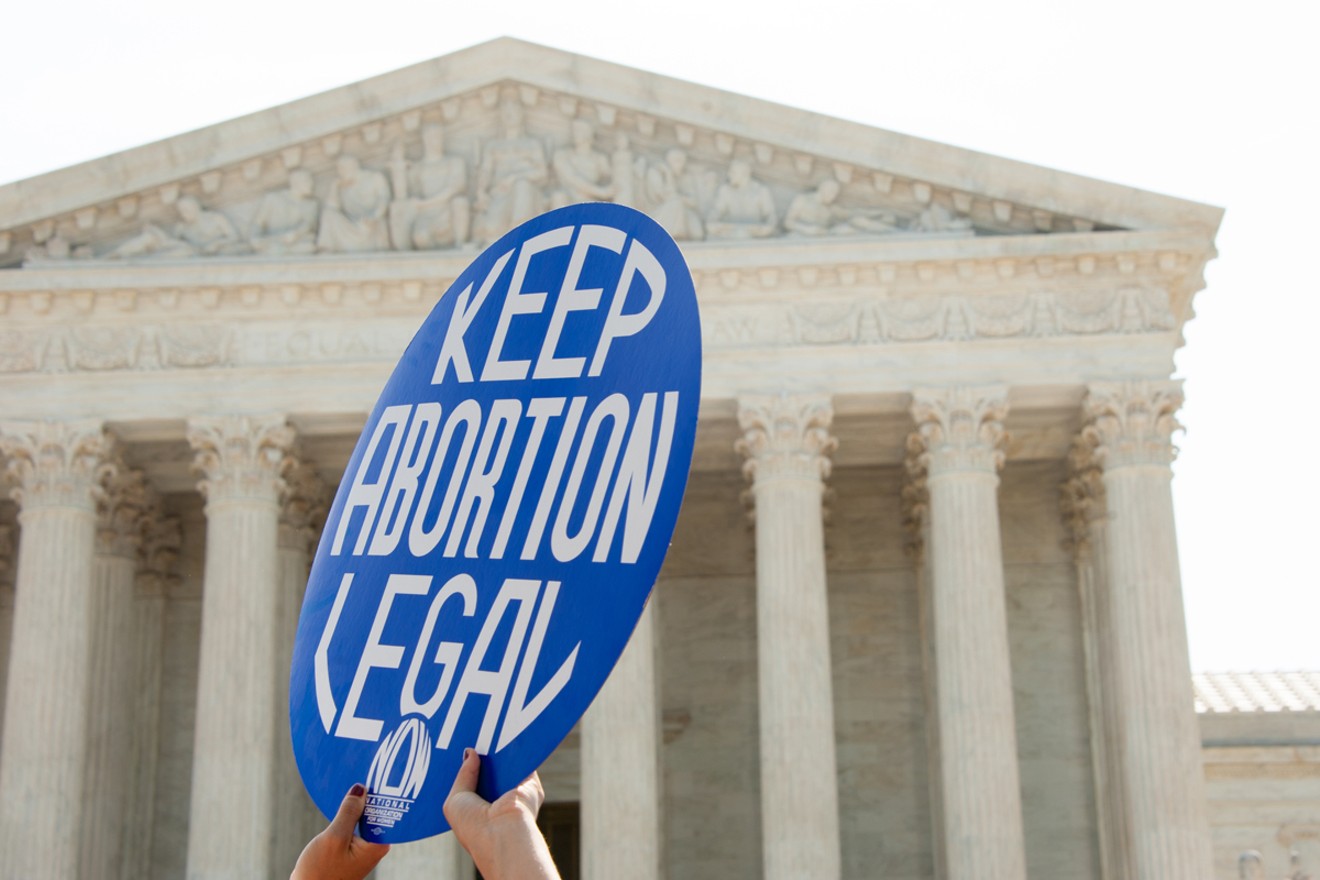Perhaps emboldened by Ohio's decision, Florida lawmakers have now pitched their own 20-week abortion ban.
Yesterday first-term state Reps. Joe Gruters and Don Hahnfeldt, two (male) Republicans from Sarasota and Central Florida, filed HB 203, also called the "Florida Pain-Capable Unborn Child Protection Act," which would make performing an abortion after a fetus can "feel pain" illegal. Gruters' bill says, specifically, that a fetus can feel pain after 20 weeks. Florida law currently bans abortions after 24 weeks postconception.
Gruters did not respond to a phone message yesterday from New Times. A companion bill has not yet been filed in the state Senate.
On Facebook, Gruters said Wednesday he was "proud to stand up for life in the first bill that I file as a member of the state House." Gruters was the
The bill would make it a third-degree felony to perform an abortion after 20 weeks unless the pregnancy is a "serious health risk" to the mother. The bill says that women who get abortions can't be criminally charged but that fathers of unborn children can sue mothers who abort them after 20 weeks. The bill would also create a "legal defense fund" to help Tallahassee pay for lawsuits stemming from the law and force doctors to file reports for every abortion they perform. Late or misfiled reports could result in a $1,000 fine.
If passed, the ban would take effect January 1, 2018.
State legislators have been salivating at the idea of restricting abortion access in recent years: They proposed a 20-week ban in 2014, which failed to pass.
In 2015, state lawmakers passed a sweeping bill requiring women to endure 24 hours of counseling before undergoing an abortion. The American Civil Liberties Union then sued: Since then, the Florida Supreme Court suspended the
A year later, the state passed yet another bill legally shortening the dates of pregnancy trimesters, forcing abortion providers to have hospital-like facilities, and stopping state funding to Planned Parenthood, the women's health-care provider which also administers abortions. A federal judge struck down portions of that law hours before it went into effect.
Planned Parenthood has long fought 20-week bans,
These measures "are unconstitutional and a clear attempt to erode Roe v. Wade at the expense of women’s health," Planned Parenthood's website says. "In fact, 20-week ban proponents are outspoken about their goal to challenge the 1973 Supreme Court decision protecting a woman’s right to safe and legal abortion."
Gruters' bill also rests on the largely debunked theory that unborn children begin to feel pain at 20 weeks. Though anti-abortion activists have used this theory to pass 20-week bans in 15 states, most scientists agree pain receptors don't fully develop until 24 weeks of gestation.
In fetuses, the prefrontal cortex — which allows humans to experience pain — does not develop until 24 weeks. Most biologists agree the prefrontal
The "assertion of some medical experts that an unborn child remains in a coma-like sleep state that precludes it from experiencing pain is inconsistent with the documented reaction of unborn children to painful stimuli and with the experience of fetal surgeons who have found it necessary to sedate an unborn child with anesthesia to prevent it from thrashing about in reaction to invasive surgery," the bill says.
Scientists have rejected this argument.
"Studies have shown, however, that the recoil is more of a reflex controlled by the 'lower brain' (which is involved with more base functions like breathing than with consciousness) or the spinal cord and does not necessarily reflect an experience of pain," a FactCheck.org article states, citing research from the Journal of the American Medical Association.
Other doctors have said science can't yet figure out if fetuses feel pain or not — so it's too early to codify any sort of pain-based abortion ban into law.
But it's not clear it's "science" here that matters: Anti-abortion groups such as Right to Life have said that 20-week bans are designed to "challenge Roe v. Wade," the landmark Supreme Court decision that legalized abortion in America. Right-to-life advocates all but hope the bill invites
Update 1/13: State Senator Greg Steube, the same Florida Senator who is proposing bringing more guns to Florida airports, filed a companion bill in the state senate on Wednesday:
.@gregsteube, same FL Senator proposing bringing guns to airports, files companion 20-week abortion ban in @FLSenate https://t.co/7eGBYv1ACG pic.twitter.com/T0GJpDvrDI
— Jerry Iannelli (@jerryiannelli) January 13, 2017












